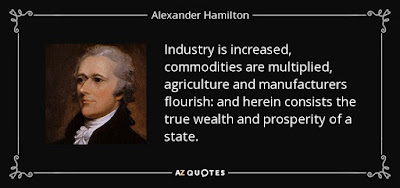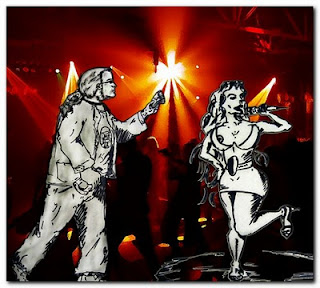Assertion of aspirations? Or betrayal of ideals?
Another "Heneral Luna" afterthought
At first, it seemed to be disenheartening to read about Jerold Tarog's Twitter post about his movie.
That with his post trying to negate the movie's antiimperialist nature and rather stressing its nihilist side, this person thinks that the director who happened to studied Antonio Luna and the Malolos Republic, "turned back on his shadow" as he insist his movie as simply "pointing against his fellow Filipinos" or even treating patriotism aesthetically as any other marketing ploy: selling tickets especially to students and those who seek some fresh air after seeing frustrated ripoffs of Asian and Latin American dramas on movie houses.
The statement may seemed partially true that Luna becoming nihilistic in his anger blaming the Filipino "self" rather than its "White, Anglo-Saxon, Protestant" occupier, but if one may ask, was it really the Filipino in general? Or the system that ruled over Filipinos who chose to keep their interests than putting efforts in defending the country against its newly-arrived occupier?
Anyway, to most people, it's nothing but a movie, plain and simple. A mere dramatisation of sorts in a way the director afforded to tell that “[t]here are bigger truths that can be reached by combining the REAL and the IMAGINARY”.
And in it shows that in this so-called "cultural capitalism" of sorts, anything meaningful is either reduced to meaningless aesthetic as any other fashion statement or being distorted as it becomes a mere trend as any other music being played.
Worse, to see it both. Especially to see how the director created a meaningful movie such as Heneral Luna, having it researched as possible besides putting some artistry and realism (especially in combining what was real and fictitious), and yet he rather treated it altogether as if just an aesthetic (via apolotical or non-partisan approach) amidst its political significance, or no matter how truly madly good that movie invoked as such.
And in it somehow made people treated that effect brought about by that movie as a short term fad as any other movie they had watched in a cinema house. Thinking about country above self or for reality's sake, the "Ensaymada" Rusca ate and how handsome Roman was.
Obviously, Luna's question between "country or self interest" pertains to the fact that the country known as the Philippines has been enslaved by interests for centuries; and most if not all people rather admit it "least they survive" in that "goddamn hell" if not telling that "life goes on" with all the typical acts like trading or farming in that period (as shown by another perios movie "Amigo"). And although may sound true that Luna's anger rather appeals to Filipinos in general and its inherent negative character than those of the system that tolerates being "misfits", Luna's radical patriotism (as also carried by activists and revolutionaries alike) meant hindrance by those who rather keep their personal interests especially those who talk about "peace" with the Americans like Paterno and Buencamino; furthermore, Luna's appeal to patriotism had becoming populistic rather than elitist in character the way he insist that "there are no one who is above the law including those of the president" if not rallying his men amidst Gatling gun and cannon fire.
But again, with that message, one would think and say how truly that the director turned back on his shadow regardless of his supposed "intentions". Especially in an era of patriotic, if not national resurgence.
And also to think on the scene how Luna stated that the Filipinos themselves (or as what he said "ourselves") as a "bigger enemy" than those of the Americans (as what Tarog insisted), one may reinterpret that phrase into something nihilistic, in a way Captain Rusca referred that line as to address the whole of “Filipino people”, noting that “we are the ones who killed him.”
That in turn blaming the Filipino of betraying the revolution, of devouring its own children like what happened at Bonifacio, Jacinto, Sakay, Montalan, and others who had died for their struggle. Nihilistic that in order to save the landlord-led "ilustrado republic" from the “misery” of their betrayal: is to rechannel their own obvious mistakes to those of the common people, who were mostly victimised by both Spain, America, and worse, by the "republic" meant to serve.
And by extension, as what Epoy Deyto stated from his post, that "to blame “ourselves” of the country’s mishaps (regardless of class, ethnicity, and your degree of participation to the revolution) has rather "became the tool of those in power to place guilt over everyone of us, like a good old catholic priest’s sermon."
"This, in effect, deters us to shift our critical eye on structural oppression of the bourgeois compradors, landlords, and corporate owners, and to rather mind our own businesses, to point our fingers back to our own chests." Deyto added.
Truly a same old interest-driven betrayal that has to be corrected. The director for sure did seriously read Vivencio Jose, Teodoro Agoncillo, or even Renato Constantino prior to making that film and its idea of merging both real and imaginary.
And like Deyto, this person's afterthoughts on the director's remarks is brought out of the idea that "Cinema is the most important of all arts" and how that director took an element from his film and cultivated it into something that invokes nationalist feelings if not the desire to rectify the wrongs.
And in it, "almost agitprop" films like Heneral Luna is obviously a vehicle to instil nationalism in its various forms to the people, hence, it has an agenda that has to be recognised! Quite wondering though why that director belittled patriotism in his creation the way he put emphasis on both nihilism and betrayal? Or was he really treated patriotism in that movie as either reduced to meaningless aesthetic as any other fashion statement or just being distorted as it becomes a mere trend as any other music being played?
Anyway, all despite seeing a director dickriding history for fame and the rest treating the appeal brought about by that movie as a fad, a few did really get the movie's message, and that is far from what the director said in his social media account.
And still the profiteer who initially shunning it out of unprofitably really profits from it as in any other box office hit.





































